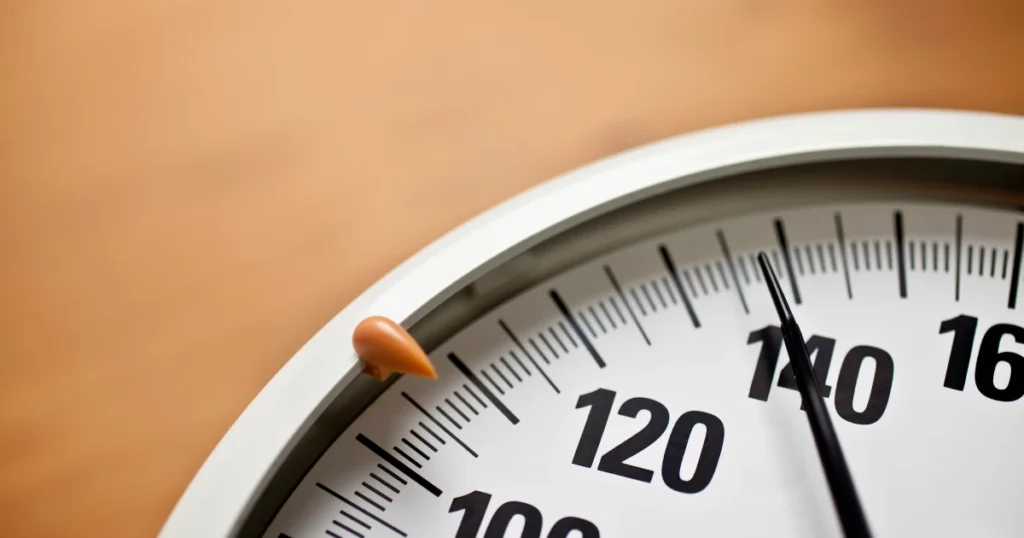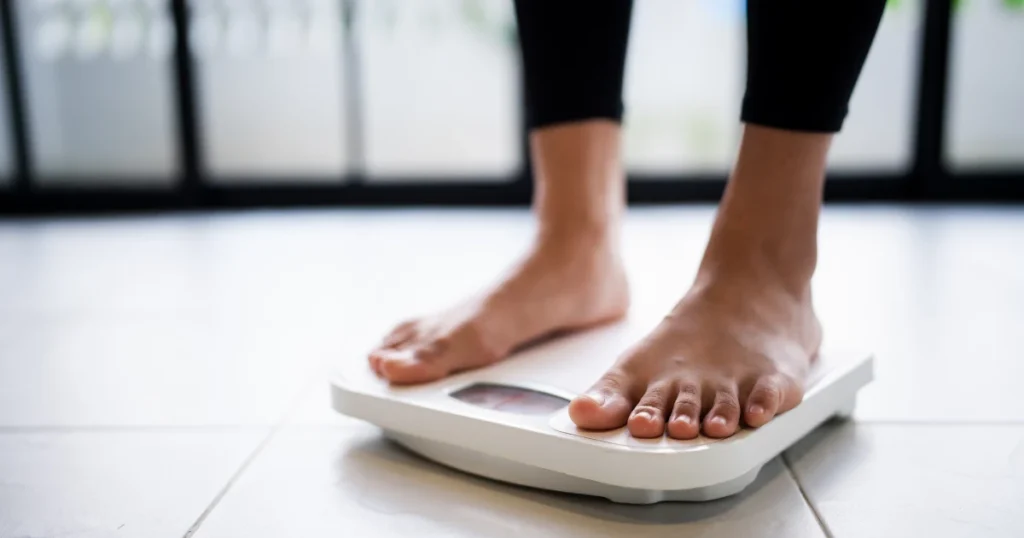Introduction

What Happens After Gallbladder Removal
Gallbladder removal, also known as a cholecystectomy, is a common procedure performed to treat gallstones, inflammation, or other gallbladder-related issues. While the surgery often brings relief from pain and digestive discomfort, it also introduces new changes in how your body processes food—particularly fat. Without the gallbladder, bile (a digestive fluid that helps break down fat) flows directly from the liver into the small intestine, instead of being stored and released when needed. This can lead to noticeable shifts in digestion.
Why Weight Gain Becomes a Common Concern
Many people are surprised to find themselves gaining weight after gallbladder removal. In fact, it’s one of the most frequently reported side effects post-surgery. This weight gain isn’t always due to overeating—it often stems from slower fat digestion, hormonal fluctuations, changes in appetite, and the natural slowing down that occurs during recovery. If you’ve noticed the numbers on the scale creeping up after your surgery, you’re definitely not alone.
Who This Article Is For
This guide is for anyone who has undergone gallbladder removal and is struggling with unwanted weight gain. Whether you’re newly post-op or have been trying to manage your weight for a while, this article will help you understand what’s going on inside your body and how to regain control in a healthy, sustainable way. It’s also helpful for caregivers, family members, and anyone supporting someone recovering from this surgery
Understanding the Role of the Gallbladder
What the Gallbladder Does in Digestion
The gallbladder is a small, pear-shaped organ located under your liver. Its main job is to store bile—a yellow-green digestive fluid produced by the liver. When you eat, especially fatty foods, the gallbladder releases bile into the small intestine to help break down fats into smaller particles your body can absorb. It may be small, but the gallbladder plays a big part in smooth and efficient digestion.
How Digestion Changes After Removal
Once the gallbladder is removed, bile no longer has a storage container. Instead, it trickles continuously into the small intestine, even when you’re not eating. This constant but less concentrated bile flow can make it harder for your body to digest fats properly. Over time, this can lead to changes in bowel habits, nutrient absorption, and ultimately, shifts in your weight. Your digestive system may also become more sensitive to certain foods, making dietary adjustments an important part of recovery.
Why Weight Gain Can Happen After Gallbladder Surgery

Slower Fat Metabolism
Without a gallbladder, your body may not break down fats as efficiently. This means your metabolism can slow down, especially when it comes to processing high-fat meals. Unused fats may be stored in the body, leading to gradual weight gain even if your overall diet hasn’t changed much.
Hormonal Shifts and Their Effect
Surgery and digestive stress can trigger hormonal changes, especially in women. These changes can affect hunger signals, energy levels, and how the body stores fat. Some individuals may notice an increase in cravings or changes in how their body responds to insulin, both of which can contribute to weight gain.
Lifestyle Changes During Recovery
After surgery, it’s natural to take it easy. Many people reduce physical activity and focus on resting. While this downtime is essential for healing, it also means fewer calories are burned during the day. Without adjusting food intake to match this new level of activity, weight gain can sneak up quickly.
Changes in Appetite and Cravings
Some people find that their appetite increases after gallbladder surgery, while others experience new cravings, especially for fatty or comfort foods. These cravings can be the body’s way of seeking energy during recovery, but if not managed carefully, they can contribute to unwanted weight gain.
Common Symptoms Alongside Weight Gain
Bloating and Indigestion
It’s common to experience bloating and gas after gallbladder removal. Since the body struggles more with digesting fat, meals that were once easy to tolerate may now leave you feeling full and uncomfortable. This bloating can sometimes be mistaken for fat gain, adding to frustration.
Fatigue and Sluggishness
Digestive issues and nutritional imbalances after surgery can lead to tiredness and low energy. When you’re not feeling your best, it’s harder to stay active or prepare healthy meals—two key factors in maintaining a healthy weight.
Difficulty Losing Gained Weight
Perhaps the most frustrating part is that even when you try to lose weight post-surgery, it often doesn’t come off easily. Changes in metabolism, digestion, and hormone levels can all make weight loss more challenging than before. But the good news is—with the right approach, it’s still possible.
Foods That May Trigger Weight Gain Post-Surgery

High-Fat Foods to Watch Out For
After gallbladder removal, fatty foods can become your digestive system’s worst enemy. Fried items, fatty cuts of meat, creamy sauces, and full-fat dairy products are harder to process and often contribute to weight gain and discomfort. Reducing these can make a big difference.
Sugary and Processed Items That Worsen Digestion
Sugar-laden snacks, sodas, and processed foods often contain hidden fats and additives that stress the digestive system. These foods can spike blood sugar, promote fat storage, and lead to bloating, especially when your digestion is already sensitive.
Sneaky Ingredients That Add Calories
Watch out for calorie-dense sauces, salad dressings, and packaged “low-fat” foods. Many of these contain added sugars or starches that your body quickly converts to fat. Reading labels and choosing whole, minimally processed foods can help you stay in control.
Healthy Eating Tips After Gallbladder Removal
Your diet plays a critical role in how well your body adjusts after gallbladder surgery. While it may seem overwhelming at first, making mindful choices can improve digestion and help keep your weight in check.
Best Foods to Support Digestion
After gallbladder removal, your digestive system becomes more sensitive, so it’s important to eat foods that are gentle and nourishing. Focus on:
- Lean proteins like grilled chicken, turkey, tofu, and legumes. These help keep you full without overloading your system with fat.
- Whole grains such as oats, brown rice, and quinoa, which aid digestion and provide sustained energy.
- Cooked vegetables like carrots, spinach, zucchini, and sweet potatoes. These are easier to digest than raw vegetables early on.
- Low-fat dairy or plant-based alternatives, if tolerated, to maintain calcium intake.
- Fruits like bananas, applesauce, and melons, which are less likely to cause bloating or discomfort.
These foods are rich in fiber, vitamins, and essential nutrients that support digestion and help manage weight.
Meal Planning Ideas for Weight Control
Consistency is key. Eating small, balanced meals throughout the day helps your digestive system adjust and prevents overeating. Here’s a sample approach:
- Breakfast: Oatmeal with banana slices and a sprinkle of chia seeds.
- Lunch: Grilled chicken wrap with steamed veggies and whole grain tortilla.
- Snack: Low-fat yogurt with berries or a handful of almonds.
- Dinner: Baked salmon with quinoa and sautéed spinach.
- Hydration: Water, herbal teas, and diluted fruit juices can help flush out toxins and ease digestion.
Meal prepping once or twice a week makes it easier to stick to a plan and avoid last-minute unhealthy choices.
How to Introduce Fats Gradually
While fat is essential to your health, your body will need time to adapt to digesting it without the gallbladder’s help. Start slowly:
- Begin with healthy fats like olive oil, avocado, nuts, and seeds in small amounts.
- Avoid trans fats and saturated fats, such as those found in fried foods and processed snacks.
- Reintroduce fats one food at a time and track how your body reacts.
- Aim for no more than 20–30% of your daily calories from fat initially, then adjust based on tolerance.
Introducing fats mindfully can prevent digestive distress and help you maintain or lose weight healthfully.
Lifestyle Changes to Prevent Weight Gain

Changing your daily habits can make a huge difference in how your body recovers and manages weight post-surgery.
Importance of Light Physical Activity
Movement helps jumpstart metabolism, prevents weight gain, and supports digestion. After your doctor clears you for activity:
- Start with light walking for 15–30 minutes a day.
- Gradually add low-impact workouts like yoga, swimming, or stretching.
- Aim for 150 minutes of moderate activity per week, split into manageable sessions.
Staying active boosts energy, reduces bloating, and improves overall well-being.
Tips for Stress Management and Better Sleep
Stress and poor sleep can throw off your hormones, leading to cravings and weight gain. Consider:
- Practicing deep breathing or meditation for a few minutes each day.
- Creating a consistent sleep routine, aiming for 7–9 hours of rest each night.
- Limiting screen time before bed and avoiding caffeine late in the day.
Reducing stress not only supports your emotional health but also helps regulate your appetite and metabolism.
Keeping a Food Journal
Tracking what you eat can help identify patterns and triggers. A food journal allows you to:
- Notice which foods cause discomfort or bloating.
- Keep an eye on portion sizes and calorie intake.
- Recognize emotional or stress-related eating habits.
It doesn’t need to be complicated—just a simple notebook or app where you jot down meals, snacks, and how you felt afterward.
When to See a Doctor or Dietitian
Sometimes, professional support is necessary to get things back on track.
Warning Signs You Shouldn’t Ignore
While some digestive issues are normal during recovery, persistent or severe symptoms should not be brushed off. Contact your healthcare provider if you experience:
- Constant nausea or vomiting
- Unexplained rapid weight gain
- Severe bloating or abdominal pain
- Diarrhea that doesn’t improve over time
These could be signs of complications or nutritional deficiencies that need attention.
How a Professional Can Help You Recover and Manage Weight
A registered dietitian or gastrointestinal specialist can:
- Help you create a personalized eating plan
- Address nutrient gaps
- Suggest safe supplements if needed
- Provide accountability and support for weight goals
You don’t have to figure it all out alone—getting expert advice can make the recovery journey smoother and more successful.
Real Life Stories and Experiences
Reading about others who’ve walked this path can offer both insight and comfort.
What Others Faced After Gallbladder Surgery
Many people report facing similar challenges—unexpected weight gain, digestive changes, and the emotional toll of not feeling like themselves. For some, it took months to understand how their body reacted to certain foods. Others found it hard to maintain energy levels during recovery.
How They Managed Weight Gain Successfully
Success stories often share a common thread: patience and persistence. By keeping meals light, prioritizing movement, and staying in tune with their bodies, many found ways to feel better and get their weight under control. Support from online communities and professionals also played a big role.
You’re not alone—hearing how others overcame their struggles can help you stay motivated and hopeful.
Final Thoughts
It’s Not Just About the Scale
Weight gain after gallbladder removal is frustrating, but remember—it’s not just about the number on the scale. Your body has undergone a major change, and healing takes time. Focus on feeling better, building strength, and supporting your digestion first.
Long-Term Health After Gallbladder Removal
With the right care, most people go on to live full, healthy lives without their gallbladder. By eating mindfully, staying active, and managing stress, you can protect your long-term health and even come out stronger than before.
Encouragement for Your Journey
If you’re struggling right now, take a deep breath—you’re doing the best you can. Recovery is not always linear, but every small step counts. Keep listening to your body, stay patient with yourself, and reach out for support when needed. You’ve got this.